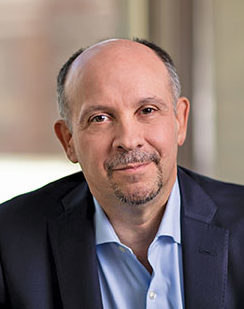Part of the value of higher education, beyond applicable knowledge and a degree, is exposure to new ways of thinking. Learning to collaborate with people of varied viewpoints is a lifelong skill, and diverse thinking leads to novel ideas and solutions.
But to achieve true diversity in thinking and learning beyond high school, students with developmental disabilities must also be included.
For years, such students have faced barriers to success. K-12 special education often segregated them in separate classes and classrooms, preparing them for employment in a limited range of jobs or in “sheltered workshops,” doing piecework for low wages. As for college, it often seemed unthinkable for people with intellectual disabilities, and students on the autism spectrum who were admitted usually had to make their way on their own as best they could.
This harms not only those with disabilities, but also students in the mainstream, who are denied the chance to grow and learn by interacting with others. It also harms society at large, by essentially sidelining a segment of the population that can—and should—contribute to our collective well-being.
In short, students with disabilities must be part of building a better future—which means they need and deserve high-quality education beyond high school.
Fortunately, the nation’s colleges and universities are beginning to get the message. Institutions around the country are offering programs that promote full integration, allowing students with developmental and intellectual disabilities to get the specialized support they need, while interacting with the campus community and being genuinely challenged in their work.
This issue of Focus will examine that trend, highlighting three programs that empower students with developmental disabilities. For instance:
- You’ll learn about Utah State University’s Aggies Elevated program. Founded after a group of parents raised funds to get it started, the two-year program serves about 15 students at a time. These students take courses for college credit, receive mentorship and tutoring, and participate in a required internship that helps them find jobs. The program teaches valuable life and social skills, whether through homework help and tutoring at the program’s “Home Base,” or during shopping trips to purchase supplies for weekly get-togethers.
- You’ll read about the Integrated Studies program at Millersville University in Pennsylvania, a program that weaves students with intellectual disabilities fully into the college experience. Students get the support they need while fully immersing themselves in college life through integrated classrooms, dorm life, and clubs. Daniel Castellanos, the first student in the program and a 2016 graduate, used his Integrated Studies experience to find rewarding employment—and to prepare for an even brighter future. Castellanos, now an award-winning prep cook at a popular restaurant in Lancaster, plans someday to open a dinner theater.
- You’ll also learn about Western Kentucky University’s Kelly Autism Program, which supports students on the autism spectrum through mentorship and focus on both interpersonal and social skills. Even as classes are held remotely because of the COVID-19 pandemic, the students still get support, including graduate student David Merdian, who is completing a master’s degree in economics even while in semi-isolation.
The three programs featured here—like many of the nation’s nearly 300 programs for students with intellectual disabilities and 70 programs for those with autism spectrum disorder—help students earn credentials and find meaningful jobs. And they do that while fostering the social skills and connections that any student needs to thrive.
In other words, they do what all good post-high school programs do: They prepare students for successful careers—and lives—in our diverse democracy.
This online edition of Focus magazine includes additional material not found in the printed version, including several extra features and a number of links to other programs and advocacy organizations.
All of the material in this issue of Focus is designed to serve the foundation’s commitment to foster social equity. My Lumina colleagues and I are committed to that cause, not just in education, but in American society at large.
We believe strongly that the higher education system must work better for all students, including those with developmental disabilities. And we’re convinced that the programs featured here have important lessons to teach.

Jamie P. Merisotis
President and CEO Lumina Foundation

